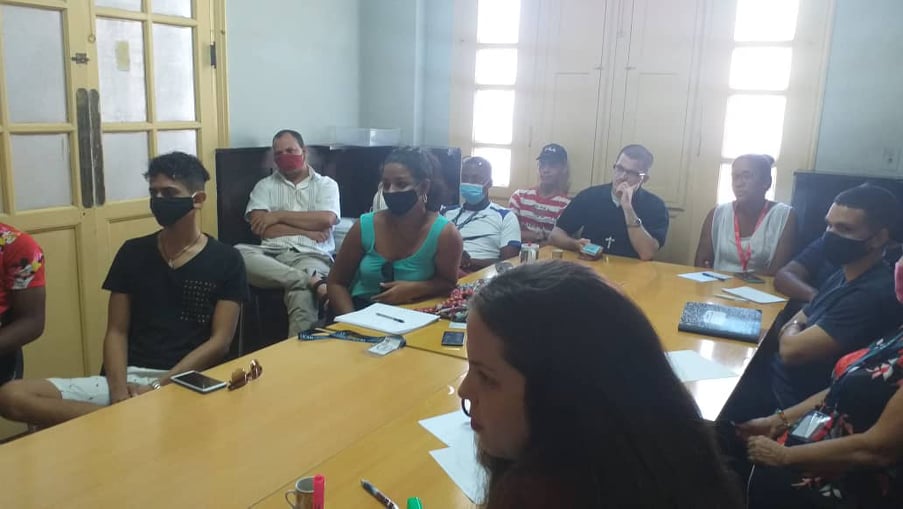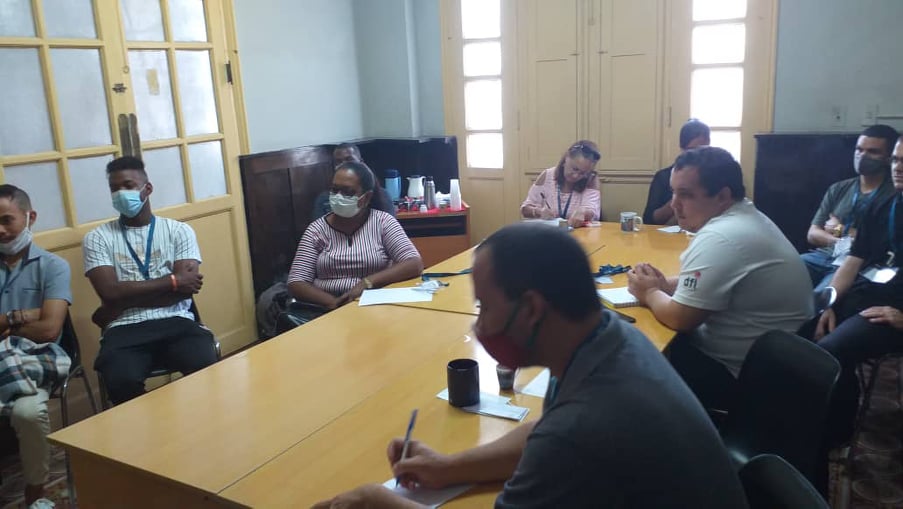
The Economy of Francesco: young artisans of an economy with a soul
26 November 2020“The Economy of Francesco”, the name of the global online event held from 19 to 21 November, is part of an invitation by the Holy Father to young economists, entrepreneurs and agents of change from all over the world to think about a fraternal and sustainable economy. Thousands of young people responded enthusiastically to the Pope’s invitation in May 2019, and two thousands of them were selected to meet in Assisi in March 2020, including four young Cubans. However, the Covid-19 pandemic surprised everyone and, instead of a face-to-face meeting, we began to articulate ourselves as a community around 12 thematic axes (which we named “villages”) in the form of online working sessions.
Each young person had the opportunity to select a theme, namely: work and care; management and gift; finance and humanity; agriculture and justice; energy and poverty; profit and vocation, policies for happiness; CO2 from inequality; trade and peace; economy is woman; enterprises in transition; life and lifestyles. Over the course of 6 months, inside the villages, the young people began to organise and share the work by exchanging reflections, proposals, experiences, or by participating in the webinars, a series of online conferences with experts of international prestige.

The village that welcomed me was Finance and Humanity with the question “how can finance be at the service of man”. Inside the village we were divided into 6 groups to particularize the question in critical areas related to financial vocation, sustainability, regulation and education, as well as its consequences in the real economy, in particular from the eyes of the excluded. In this last sub-theme (the real economy and the excluded), I joined 15 young people of Argentinean, Brazilian, Vietnamese, American, Peruvian, Swiss and Italian nationality. One of the initial challenges we had to overcome was to agree on the days and times of the meetings, which was influenced by the difference in time zones (there are 12 hours difference between Cuba and Vietnam, for example) and work schedules. There was also the challenge of internet connection (a real challenge from Cuba!) and language, because although we assumed English as the official language, for most people it is not their mother tongue and they speak it with different accents. All this motivated us to better organise the meetings and to emphasise the quality of the exchange. The group sessions turned out to be a laboratory where not only analyses and proposals were interwoven, but also human relations that were respectful of our differences (cultures, religions, life stories…). However, during the recently held online event, we all agreed that we are at a starting point, so although we presented the final products, we want to continue developing them until November next year when we will meet in person in Assisi, God willing.
In addition to the work in the villages, the Economy of Francesco has also been developed through regional networks formed by geographical proximity; in the case of the Latin American Network, young people from the Patria Grande have met on different platforms and within this, those from Central America and the Caribbean have wanted to get closer in a special way given the small number of participants in our countries. As a third area of action, we had the world stage through the online event held from November 19th to 21st with an innovative, participative and global programme made up of moments of group workshops, plenary sessions with the guidance of prestigious speakers, moments of silence, meditation and spirituality, artistic presentations and interviews. In Santiago de Cuba a venue was set up with the participation of 15 young people, including seminarians, youth pastoral agents, entrepreneurs and economists.

At the end of each day, it was timely and useful to exchange the internal resonances we were having during the day: “connecting with the dreams of the world, of the Pope, which are my dreams” (Lucia, Vista Alegre community, 25 years old), “it is new for me to see the economy through the eyes of faith, it makes me change my way of seeing the world” (Eduardo Michel, Santa Lucia parish, 20 years old), “it challenges me on how to improve my life and the life of people” (Ana Margarita, young entrepreneur, 30 years old), “The economy must be understood as a means to an end, and not as an end in itself” (Leonardo, 22 years old, seminarian), “it challenges me to look for new ways to support our parish communities” (Osvaldo Caliste, El Caney parish, 32 years old), “we need to pray what we have lived these days to discern together what to do better” (Yoel, Saint Egidio community, 32 years old).
In this global encounter we confirm that the spirituality is the one that energizes the commitment for solidarity with the poor and excluded and victims of the systems of death, which also forms part of the Claretian spirituality and mission that makes the option for the poor, the defense of life, the construction of peace with justice and dignity for all, but from the place of the excluded. The Claretian missionary, like the Saint of Assisi, desires to transform his existence not in function of lack, but of simplicity and communion of goods, channeling them towards his function of solidarity. Hence, Claretian spirituality can be seen as a source and richness for the “new practice” of the Economy of Francesco.
Pope Francis, during his closing message of the meeting, urged the young people not to remain outside of where the present and the future are taking shape, to live a mystique of the common good, to transform our priorities in order to learn how to take charge of the most vulnerable brother, to take up the structural challenges with new processes and models of development. Inspired by the Pope and the Saint of Assisi, faces, personalities and concrete ideas are already part of the Economy of Francesco, a community of young artisans who are deepening their spirituality in order to give soul to the economy of today and tomorrow.
